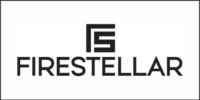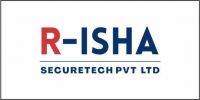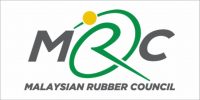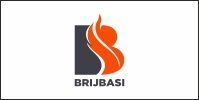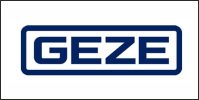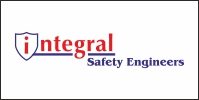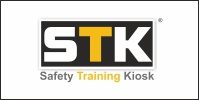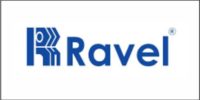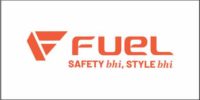 In an era where data breaches and security threats are prevalent, access control has emerged as a fundamental pillar of security and risk management strategies. By regulating who can access specific resources and under what circumstances, organizations can significantly mitigate risks associated with unauthorized access and data loss. This article explores the critical role of access control in enhancing security and managing risk within organizations.
In an era where data breaches and security threats are prevalent, access control has emerged as a fundamental pillar of security and risk management strategies. By regulating who can access specific resources and under what circumstances, organizations can significantly mitigate risks associated with unauthorized access and data loss. This article explores the critical role of access control in enhancing security and managing risk within organizations.
- Understanding Access Control
Access control refers to the methods and policies that govern how users gain access to resources, systems, and data within an organization. It encompasses various types, including:
- Physical Access Control: Protecting physical spaces, such as buildings or secure areas, through locks, keycards, and biometric systems.
- Logical Access Control: Regulating digital access to systems and data through user authentication mechanisms, permissions, and roles.
Effective access control ensures that only authorized individuals can access sensitive information and critical resources, thereby reducing the risk of security breaches.
- Mitigating Security Risks
Access control is pivotal in minimizing security risks associated with unauthorized access:
2.1 Protecting Sensitive Data
Sensitive information, such as personal data, financial records, and intellectual property, must be safeguarded from unauthorized access. Access control mechanisms help:
- Restrict Access: Limiting data access to authorized personnel minimizes the chances of data breaches and leakage.
- Monitor Access: Logging user access and activity helps organizations detect suspicious behavior and respond swiftly to potential threats.
2.2 Preventing Insider Threats
Insider threats can pose significant risks to organizations, often stemming from disgruntled employees or negligence. Effective access control measures can help:
- Limit Permissions: By enforcing the principle of least privilege, organizations can ensure that employees only have access to the information necessary for their roles, reducing the potential for abuse.
- Establish Accountability: Monitoring access logs provides a trail of who accessed what information and when, fostering a culture of accountability.
- Enhancing Compliance and Regulatory Adherence
Many industries are subject to stringent regulations regarding data protection and privacy. Access control plays a crucial role in helping organizations comply with these regulations:
- Regulatory Frameworks: Standards such as GDPR, HIPAA, and PCI-DSS mandate strict access controls to protect sensitive data. Non-compliance can result in severe penalties and reputational damage.
- Audit Trails: Robust access control systems maintain detailed logs that can be reviewed during audits, demonstrating compliance and highlighting areas for improvement.
- Integrating Access Control into Risk Management Strategies
Access control is a critical component of comprehensive risk management frameworks. Its integration can enhance an organization’s overall security posture by:
4.1 Risk Assessment
Conducting regular assessments of access control measures helps organizations identify vulnerabilities and address them proactively. This process can involve:
- Evaluating Access Levels: Reviewing user access rights to ensure they align with current roles and responsibilities.
- Identifying Gaps: Analyzing access logs to identify unusual patterns that may indicate potential risks.
4.2 Incident Response Planning
In the event of a security breach, having a well-defined access control strategy can facilitate a quicker and more effective response:
- Immediate Revocation: Access control systems can enable the rapid revocation of user access in response to a breach, minimizing potential damage.
- Post-Incident Analysis: Analyzing access logs post-incident can provide insights into how the breach occurred and inform future improvements to access control policies.
- The Future of Access Control in Security Management
As organizations evolve, so do the challenges they face. Emerging technologies and trends, such as cloud computing, the Internet of Things (IoT), and artificial intelligence, present both opportunities and risks for access control:
Cloud-Based Solutions: Organizations are increasingly moving their resources to the cloud, necessitating robust cloud access controls to protect sensitive data.
Adaptive Access Control: Leveraging AI and machine learning can enhance access control by enabling more dynamic, context-aware decision-making based on real-time user behavior.
 Access control is an indispensable element of security and risk management. By implementing effective access control measures, organizations can protect sensitive data, mitigate security risks, enhance compliance with regulations, and improve their overall security posture. As the threat landscape continues to evolve, staying ahead of access control trends and technologies will be crucial for organizations committed to safeguarding their assets and maintaining the trust of their stakeholders. Investing in robust access control solutions is not merely a technical necessity; it is a strategic imperative that can significantly impact an organization’s resilience against security threats.
Access control is an indispensable element of security and risk management. By implementing effective access control measures, organizations can protect sensitive data, mitigate security risks, enhance compliance with regulations, and improve their overall security posture. As the threat landscape continues to evolve, staying ahead of access control trends and technologies will be crucial for organizations committed to safeguarding their assets and maintaining the trust of their stakeholders. Investing in robust access control solutions is not merely a technical necessity; it is a strategic imperative that can significantly impact an organization’s resilience against security threats.












